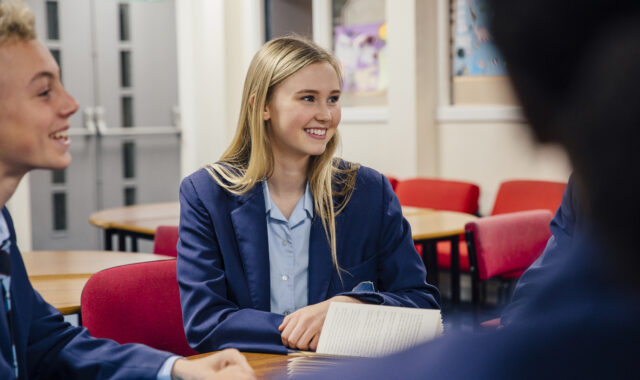Contents:
Rightly or wrongly, it is the word that fills so many teachers, leaders, and governors with dread. Ofsted. So how can we prepare for that inevitable call? In this article, I aim to use my own experiences to guide classroom teachers in their preparations for the inspection, so that you can show yourself, and your school, in its best light!
High expectations for every pupil, every day
Our pupils deserve a high-quality education. This can only be achieved if three partners work in perfect cohesion: parents/carers, the pupil, and school staff. Our job as teachers is to affect our part of this triad by ensuring high quality equitable implementation of the curriculum, providing high challenge to learners of all academic abilities, and holding pupils to account.
The last point can only be achieved if pupils are 100% clear on the expectations placed upon them. Therefore, they need to be simple to follow and over communicated clearly. Some questions to consider here include:
-
- How often do you expect to see their homework completed?
- What does “completed homework” look like?
- Is good behaviour well-defined and explicitly taught?
- Do the values of your school permeate your classroom?
- What are the means of participation in your classroom?
- Are exercise books checked regularly and low standards challenged?
- Is the work you set pupils meaningful and designed to make them “think hard”?
- Is the uniform worn with pride and challenged when it is not?
This is not an exhaustive list but illustrates the depth and complexity of the term “high expectations”.

Work to policy: behaviour
Much of what is said here builds upon the previous section, in terms of having high expectations of pupil behaviour. Now, whether your school has good behaviour or more challenging behaviour, there is one word that is paramount: consistency. In my own school, consistency is driven by a centralised behaviour system. If you employ a similar system, are you adhering to the policy perfectly? Do you have scripted warnings that pupils clearly understand? Are parents contacted at the appropriate times?
Many schools still run more localised behaviour systems. Whilst this can be more work for individual teachers, it can also give more “ownership” of behaviour resolution to the teachers at the centre of it. This can be really empowering − if it doesn’t become overwhelming. In these instances, consistency is even more challenging to achieve as it is you who will be making the calls home and arranging (and possibly running) the detention.
Whichever system best fits your current school, the central word is the same: consistency, consistency, consistency.
Work to policy: marking
Despite some of the many myths out there, Ofsted has no preference in terms of marking and feedback policies (Ofsted 2018, p.2). What is important, however, is that whatever your policy is, it must be adhered to. In my view this should be realistic, manageable, and take into consideration teacher wellbeing. Books need to be looked at, and feedback must be provided and acted upon. Without the latter, there is no point in the former! As a classroom teacher, you will be expected to mark and give feedback according to policy. If this is an area you are struggling with, do not hide from it! Seek out the support of a colleague or a line manager. Do not allow problems to build up quietly, only for them to then come out in the worst possible way during an Ofsted book-look or deep dive.

Know your safeguarding
Safeguarding is the single most important aspect of any inspection, and rightly so. There are several documents that you should keep a hard copy of, and refer to regularly, to keep your knowledge of safeguarding in schools (and your role within it) up to date. These include:
You may have noticed that none of this advice is specifically about the inspection day itself, but more about the day-to-day of teaching − this is deliberate. Teachers should not be spending hours the night before an Ofsted inspection preparing extra resources, lesson plans, or rehearsing scripts for their classrooms. The high expectations, good routines and positive relationships should already be in place! This is what it is all about. An Ofsted inspection should provide you, as a classroom teacher, with an opportunity to show inspectors what is typical in your classroom.
So don’t wait for the call. Set the bar high every single day. Afterall, this is exactly what our pupils deserve and exactly what Ofsted will want to see.







Comments